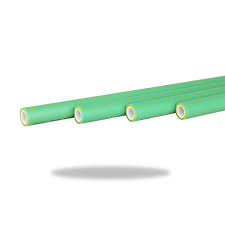Oct . 11, 2024 11:04 Back to list
Applications of PVC Pipe in Industrial Facilities and Factories for Efficiency and Durability
The Role of PVC Pipe in Industrial Applications
In the vast array of materials used in industrial applications, polyvinyl chloride (PVC) pipe stands out for its versatility, durability, and cost-effectiveness. As factories and manufacturing plants strive to optimize their operations, the utilization of PVC pipe has become increasingly common across various sectors, including agriculture, construction, and chemical processing. This article explores the reasons behind the growing popularity of PVC pipe in factories and highlights its crucial role in enhancing efficiency and sustainability.
Durability and Resistance to Corrosion
One of the primary reasons for the widespread use of PVC pipe in factories is its exceptional durability. PVC is inherently resistant to corrosion, which is a common issue with metal pipes. In environments where exposure to chemicals, water, and other corrosive substances is prevalent, PVC pipes maintain their integrity and functionality over time. This resistance not only prolongs the lifespan of the piping system but also reduces maintenance costs, making it a preferred choice for industrial applications.
Additionally, PVC pipes perform well under a wide range of temperatures, which means they can be used in various processes without the risk of degradation. Whether in hot water lines or cold fluids, PVC provides reliable service, ensuring that factories can operate smoothly without interruptions due to pipe failures.
Lightweight and Easy to Install
Another significant advantage of PVC pipe is its lightweight nature, which simplifies transportation and installation. In a factory setting, where time and labor costs are critical, the ease of handling and installing PVC pipes significantly contributes to operational efficiency. Unlike heavier materials, such as metal pipes, which require more labor-intensive installation techniques, PVC pipes can be easily maneuvered and connected, reducing the time needed to set up piping systems.
Moreover, the straightforward installation process allows for rapid repairs and modifications, which is essential in dynamic industrial environments where processes and layouts may frequently change
.Cost-Effectiveness
Cost is always a primary consideration for factories looking to optimize their bottom line. PVC pipe is often more economical compared to alternatives like metal piping. The lower material costs, combined with reduced installation and maintenance expenses, make it an attractive option for factories operating on tight budgets.
pvc pipe used for factories

Moreover, the longevity and durability of PVC now being widely accepted lead to long-term savings. Factories can cut down on replacement and repair costs while ensuring their operations run smoothly without frequent interruptions.
Environmental Benefits
In today's industrial landscape, sustainability is increasingly important. PVC pipe has a lower environmental impact compared to traditional piping materials. The production process for PVC is energy-efficient, and the material itself is 100% recyclable. Factories that use PVC piping in their operations can contribute to sustainability efforts by utilizing materials that are less harmful to the environment.
Additionally, the durability of PVC implies less waste and fewer resources expended on repairs and replacements. When factories make the switch to PVC pipe systems, they may find themselves meeting increasing regulatory standards while enhancing their eco-friendly credentials.
Versatility Across Industries
PVC pipes are incredibly versatile, suitable for a range of applications from water supply and drainage systems to ventilation and electrical conduit. Their ability to handle various liquids and gases means they can serve multiple functions within a factory, contributing to seamless operations.
Factories in diverse industries — such as food and beverage, textiles, and pharmaceuticals — utilize PVC piping for its reliability and compliance with health and safety standards. This adaptability ensures that PVC remains a top choice for industrial piping solutions.
Conclusion
In summary, the use of PVC pipe in factories is driven by its durability, lightweight properties, cost-effectiveness, environmental benefits, and versatility. As industries continue to evolve and face new challenges, PVC pipe stands as a robust solution that meets the demands of modern manufacturing. With its integral role in enhancing operational efficiency and sustainability, PVC pipe is likely to remain a cornerstone of industrial applications for years to come.
-
High-Quality PVC Borehole Pipes Durable & Versatile Pipe Solutions
NewsJul.08,2025
-
High-Quality PVC Perforated Pipes for Efficient Drainage Leading Manufacturers & Factories
NewsJul.08,2025
-
High-Quality PVC Borehole Pipes Durable Pipe Solutions by Leading Manufacturer
NewsJul.08,2025
-
High-Quality PVC Borehole Pipes Reliable PVC Pipe Manufacturer Solutions
NewsJul.07,2025
-
High-Quality UPVC Drain Pipes Durable HDPE & Drain Pipe Solutions
NewsJul.07,2025
-
High-Quality Conduit Pipes & HDPE Conduit Fittings Manufacturer Reliable Factory Supply
NewsJul.06,2025

